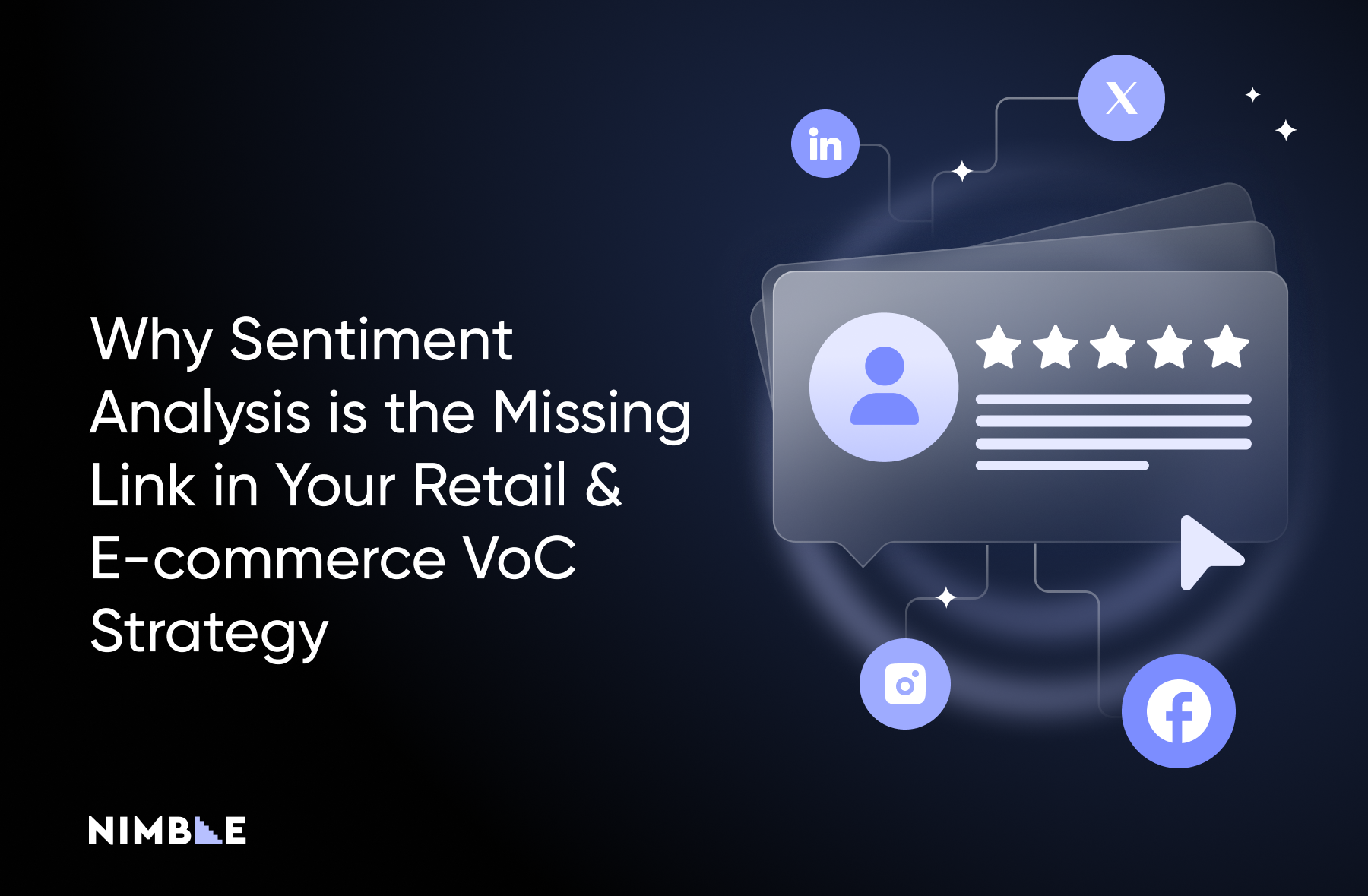What Are IP Bans? The Ultimate Guide to IP Bans in 2025
IP bans prevent you from surfing the web, scraping data, or doing other online activities. Learn what they are and how they happen.


Whether you’re surfing the web for personal reasons, web scraping for essential business data, or using bots to automate things like social account management or ticket purchasing, an IP ban can happen at the drop of a hat and grind your browsing session to a halt, often with no explanation.
So, what do you need to know about IP bans? In this article, we’ll explain what an IP ban is and discuss why IP bans occur.
What Is an IP Ban?
An IP ban or IP block is a security measure taken by websites and online platforms to block or limit access to users who violate their rules. Businesses that rely on web scraping for data collection are frequently at the receiving end of IP bans. This can be very frustrating because IP bans interrupt scraping, resulting in incomplete or inaccurate data analyses.
How Do IP Bans Work?
IP bans work by recognizing the IP address from which your web traffic is coming and denying that IP address entry to a website. If your IP has been banned and you try to gain access to a website, you typically see errors like “403 Forbidden”, or your request simply times out.
What Is an IP Address?
If you’re unfamiliar with IP addresses, an IP (Internet Protocol) address is a unique numerical identifier assigned to each device that connects to the Internet or a local network. IP addresses are allocated to your devices by your ISP (internet service provider) and are used to direct your internet traffic to the intended location. In simple terms, you can think of an IP address as the digital equivalent of a mailing address.
IP Addresses Vs. Mac Addresses
It’s important to note that IP addresses aren’t the same as MAC addresses. A MAC address is a hardware-oriented address assigned to your physical device. These are permanent and are more difficult for third parties to uncover. An IP address is software-based, mutable, can be seen by third parties, and is assigned to the network connection of your computer rather than your literal computer.
What Triggers an IP Ban?
IP bans happen when you trigger network restrictions based on the firewall rules of the website you’re trying to access. In general, IP bans happen due to three categories of behavior.
Bot-Like Behavior
- Excessive, High-Frequency Requests: Sending too many requests to a website in a short period, often due to web scraping or automated tools, can trigger an IP ban.
- Automated Form Submissions: Using bots to fill out and submit forms repeatedly, such as for registrations or surveys, is often flagged as bot-like activity.
- Excessive/Aggressive Content Scraping: Continuously extracting large amounts of data from a website using web scraping tools can trigger bans designed to protect site content.
- Bypassing a Website’s Scraping Rules: Websites often list what content crawlers can and can’t scrape in their robots.txt file. Trying to bypass these rules and scrape non-scrapable content can trigger an IP block.
- Mass Account Creation: Automating the creation of multiple accounts on platforms like social media or forums is often detected as bot activity, leading to bans.
- Rapid Content Consumption: Consuming large amounts of content (e.g., videos, articles) in a manner that suggests automated behavior rather than human interaction can trigger bot detection software.
Suspicious Behavior
- Multiple Failed Login Attempts: Repeated unsuccessful attempts to log into an account can be seen as a potential hacking attempt, resulting in an IP ban.
- Unusual Access Patterns: Accessing a website from different locations or devices in quick succession can raise red flags, as it may indicate compromised credentials or unauthorized access.
- Accessing Restricted Areas: Attempting to access administrative or restricted areas of a website without proper authorization can be seen as malicious activity.
- Spamming: Sending unsolicited or bulk messages, whether through email, social media, or forums, can result in an IP ban to prevent abuse.
- DDoS Attacks: Participating in or being part of a distributed denial-of-service (DDoS) attack can result in an IP ban to mitigate the attack’s impact.
Platform-Specific Unacceptable Behavior
- Cheating in Online Games: Using cheats, hacks, or mods that give unfair advantages in online games can result in an IP ban as part of anti-cheat measures.
- Trying to Access Geo-blocked Content: Attempting to access geo-restricted content from the wrong geolocation often results in an automatic block. Getting caught attempting to get around geo-blocking with VPNs or proxies may also result in an IP ban.
- Engaging in Illegal Activities: Participating in illegal activities such as distributing pirated content, engaging in cybercrime, or sharing prohibited materials can lead to a permanent IP ban.
- Posting Prohibited Content: Posting content with profanity, nudity, violence, references to crime or illegal activities, or other typically prohibited subjects may result in an IP block from platforms invested in protecting their community.
- Other Violation of Terms of Service: Any other actions that violate the platform’s terms of service, such as harassment or using the platform for unintended purposes, may result in an IP ban.
The Consequences of IP Bans
Network restrictions like IP bans aren’t just a tiny, temporary hiccup—they have a domino effect on your entire online experience. Here’s how they impact different use cases.
General Browsing
Ordinary internet users who get restricted by IP bans may be unable to check or update their favorite social media platforms, read important news articles, or participate in online communities. This can seriously disrupt daily online activities or limit access to critical information or services needed for work or your personal life.
Web Scraping
For web scrapers, an IP ban can halt data collection and disrupt automated processes, leading to delays or errors in conducting analytics, market research, or competitive analysis. For businesses relying on timely and accurate data, this can translate to financial losses or missed opportunities.
Gaming
IP bans can make gamers lose their account, game progress, or digital purchases associated with their account. In competitive and multi-player games, IP bans can exclude you from tournaments, leaderboards, and community features, disrupting your ability to socialize and compete with other players. This can be particularly frustrating for those involved in e-sports, where consistent access is crucial for practice and competition.
How to Confirm Your IP Has Been Banned
Websites don’t usually tell you outright when they’ve issued an IP ban against you. If you suspect your IP address has been banned, there are several diagnostic tools and methods to confirm your suspicions.
Check Access from Another Network
The simplest way to check an IP ban is to try to access the website from a different IP address. You can do this by connecting through a different Wi-Fi network, using mobile data, or using an anonymous web proxy. If the website loads, you’ve likely been IP-banned on your original network.
Use Online Checker Tools
Websites like Down For Everyone Or Just Me can help determine if a website is down for everyone due to a network outage or if the issue is specific to your IP address. Keep in mind that a website being down for you doesn’t necessarily mean you’ve been banned—it could just mean there’s a temporary issue with your ISP network or your personal firewall/security system.
Ping the Website
Open your command prompt and ping the website in question. If it returns a 403 Forbidden or similar error, it’s a strong indicator of an IP ban.
Inspect Browser Console
Open the browser console (F12 in most browsers) and look for network errors. A 403 error often indicates an IP ban.
Check for CAPTCHAs or Warning Pages
Some websites display a CAPTCHA or warning page if they detect suspicious activity. This is typically used as an anti-scraping measure. Completing the CAPTCHA usually lifts the ban, but not always.
Consult Web Scraping Logs
If you’re involved in web scraping, your logs may show repeated failures or timeouts when trying to access a particular site. This is often a sign that your IP has been banned.
Need Help Bypassing IP Bans? Try Nimble's Residential Proxies.
Conclusion
Navigating the labyrinth of IP bans can be daunting, but understanding how they happen can help refine your approach to data collection. For those specifically interested in avoiding IP bans for web scraping, Nimble offers an AI-powered advanced scraping API with state-of-the-art rotating residential proxies that can help you scrape data efficiently and without interruption.
Ready to Avoid IP Bans Altogether? Speak With Us About Our Proxies.
FAQ
Answers to frequently asked questions


















